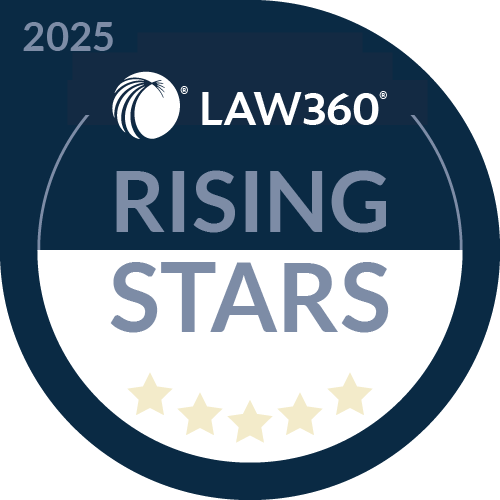Survivors of institutional sexual abuse often experience profound feelings of isolation, shame, and helplessness. The trauma is frequently compounded by the fact that abuse typically comes from someone in a position of authority—teachers, coaches, clergy, or caregivers—who should be trusted protectors. Too often, institutions dismiss or ignore allegations, prioritize their own reputation, or even shield abusers, leaving survivors feeling disbelieved and unsupported.
Why You Should Trust Breit Biniazan
At Breit Biniazan, our attorneys believe every survivor deserves to have their voice heard and their rights respected. Our experience in high-stakes institutional abuse cases—against religious institutions, schools, correctional facilities, and large organizations—ensures dedicated, trauma-informed advocacy. We are relentless in holding powerful entities accountable and strive for justice, not just closure.
Understanding Institutional Sexual Abuse Cases
Institutional sexual abuse occurs when individuals within an organization exploit their authority to harm vulnerable members. These abuses can happen across various settings—such as schools, churches, sports programs, foster care, juvenile detention centers, and healthcare facilities—where trust and power imbalances create environments ripe for exploitation. Often, institutions fail to respond appropriately to reports of abuse, allowing patterns to continue and survivors to suffer in silence.
Examples of Where Sexual Abuse Occurs
- Churches and Religious Organizations: Abuse by clergy, volunteers, or leaders. Some organizations handle sexual abuse reports internally often shielding offenders.
- Schools and Universities: Abuse by teachers, staff, or coaches. Both public and private institutions can be held liable for employee misconduct.
- Sports Teams & Organizations: Coaches or authority figures often exploit close relationships to abuse athletes; cover-ups may occur at multiple levels.
- Juvenile Detention Centers: Young people are especially vulnerable to staff misconduct; reports may be ignored entirely by management.
- Foster Homes & Group Homes: Children in foster care or group home settings are at a particularly high risk of sexual abuse due to the overall lack of oversight and power imbalances in the home.
- Healthcare Institutions: Psychiatric hospitals, long term care facilities, and nursing homes see heightened abuse risk due to vulnerable patients, staffing shortages, or overall negligence. Abuse may be committed by employees or even fellow residents.
Recent Institutional Sexual Abuse Cases
- Boy Scouts of America: Thousands of survivors filed lawsuits over decades of abuse by scout leaders and volunteers. In recent years, the Boy Scouts agreed to historic settlements—one of the largest sexual abuse settlements in U.S. history.
- The Charles H. Hickey Jr. School in Baltimore County: Nearly 500 men and women have come forward about sexual abuse suffered at the hands of staff at this juvenile detention facility, some as recently as 2019. Many reports detail instances where therapists and administrators failed to act on abuse allegations, further enabling the cycle of harm.
- Larry Nasar & USA Gymnastics: Former team doctor Larry Nassar abused hundreds of young women under the guise of medical treatment—often in plain sight. Coworkers and administrators overlooked warning signs and failed to intervene, resulting in widespread, lasting harm to survivors, some of whom suffered lifelong trauma.
When Can an Organization or Institution be Held Liable?
An organization or institution can be legally and financially liable for abuse or misconduct when it:
- Knows about abuse and fails to act or report: Organizations that are aware of harmful conduct, such as sexual abuse or harassment, but do not intervene or notify authorities can be held accountable.
- Fails to perform adequate background checks (negligent hiring): Liability arises when an organization neglects to conduct reasonable background screenings or ignores evidence of an employee’s unsuitability, and that employee subsequently causes harm.
- Permits a hostile or unsafe environment: Allowing conditions that enable abuse or harassment exposes institutions to claims of negligence and deliberate indifference.
- Attempts to conceal or downplay reported abuse: Efforts to cover up, minimize, or retaliate against disclosure of abuse may significantly increase organizational liability.
How Breit Biniazan Can Help Build Your Case
At Breit Biniazan, our attorneys can help to prove a pattern or culture of abuse by analyzing records to identify systemic failures and repeated negligence or misconduct within institutions. We will gather information such as survivor testimonies, employee records, and expert reports to help build a strong case against these institutions. By working with medical, psychological, and institutional authorities, we can begin to assess, validate, and strengthen your sexual abuse claim.
Potential Compensation for Sexual Abuse Survivors
- Monetary Damages for PTSD: Compensation for ongoing trauma and diagnosed psychological injuries.
- Medical and Therapy Costs: Coverage for immediate and long-term medical or counseling expenses.
- Pain, Suffering, and Loss of Quality of Life: Damages for non-economic harms, including negative impacts on career, relationships, and personal happiness.
Resources for Survivors
If you or someone you know is seeking support after experiencing abuse, the following organizations provide information, advocacy, and crisis services:
Additional Virginia-based support:
These organizations offer free, confidential services and can provide connections to local resources, safety planning, legal options, and trauma-informed care.
Contact Breit Biniazan Today for a Free & Confidential Consultation
If you or a loved one has suffered sexual abuse in an institutional setting, you deserve justice—and you don’t have to take the first step alone. The dedicated attorneys at Breit Biniazan have the experience, resources, and compassion to stand by your side, hold institutions accountable, and fight relentlessly for the compensation and closure you deserve.
Call Breit Biniazan now at (855) 659-4457 or submit a confidential online inquiry to arrange your completely private consultation with an experienced institutional abuse lawyer.
Your voice matters. Your story matters. Take the first, most important step toward healing and justice.















